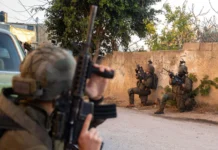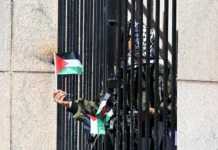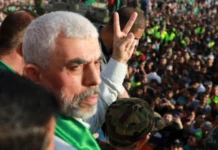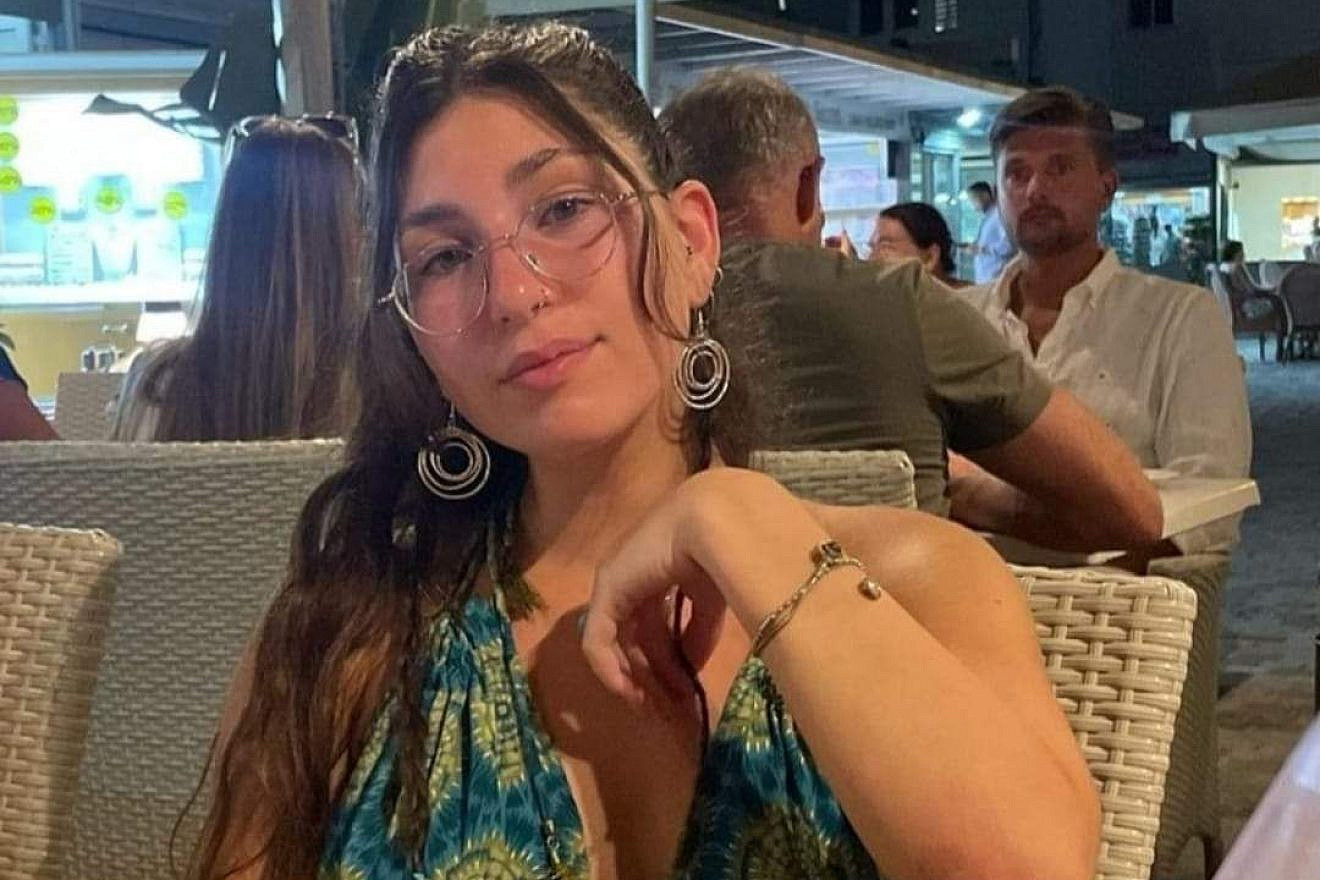“My 18-year-old daughter Tchelet was killed on a Saturday morning during the holiday of Simchat Torah,” Gladys Fishbein told JNS.
On Oct. 7, Fishbein was tending to her ill 94-year-old mother, Sarah, at Kibbutz Be’eri when Hamas terrorists invaded Israel, killing 1,200 people, including Tchelet (Celeste) and her boyfriend.
Tchelet, who along with her mother lived on the kibbutz, had recently started working in a kindergarten there, taking care of toddlers.
“Our family arrived from Brazil 52 years ago. My parents were true Zionists,” Fishbein related. “When we first arrived at Be’eri, it wasn’t a big community. We worked very hard to build it.
“Tchelet had just graduated from high school, she did not know yet what she wanted to do with her life. But she did want to be close to her grandmother in the kibbutz where she spent most of her childhood,” added Fishbein.
A month after starting at the kindergarten, Tchelet met Dor Rieder, 23, who became her partner. “I did not know Dor but from euloGies at both of their funerals, I can tell you that those two were soulmates,” said Fishbein.
Gladys Fishbein had intended to start a new life in Beersheva on Oct. 8. Instead, she found herself trapped in the safe room of her mother’s home, along with her mother’s caretaker, her son Liel, who was visiting for the holiday, and their two dogs.
“Living on the border, we are used to missile attacks. When the sirens sounded at 6:30 a.m., my mother refused to go into the shelter and went outside to get some air. We did not know how serious the situation was at the time,” recounted Fishbein.
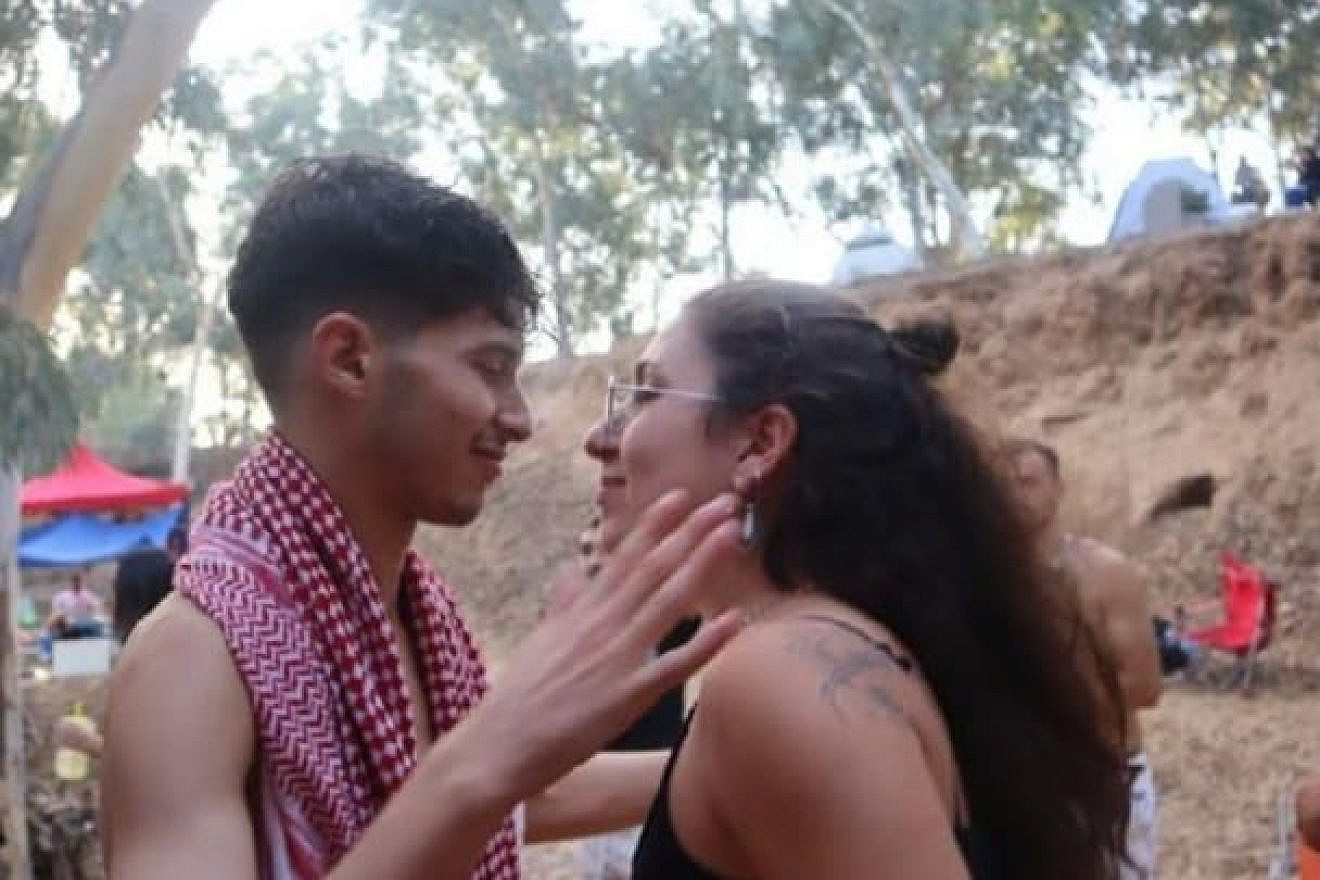
Terrorists disguised as soldiers
Soon after that, Tchelet forwarded a message to the family on Beeri’s WhatsApp group, saying: “Residents of the surrounding area: Hamas terrorists disguised as IDF soldiers are knocking on doors. Please do not open. Protect your lives. Share.” Tchelet told everyone to be careful and seek shelter.
“She worried about us more than she did for herself,” Fishbein told JNS. “Then, we started to hear voices in Arabic, shootings and bombings, while the sirens persisted.”
At 11:23, Fishbein connected to her daughter by phone for the last time.
Fishbein later learned that Hamas terrorists had broken into the safe room where Tchelet and Dor had taken shelter.
The terrorists murdered about 10% of Be’eri’s population, some 120 residents. Others were abducted to Gaza.
When the soldiers finally arrived at the kibbutz, they rescued Fishbein from the safe house.
“It was an apocalypse. I did not know where I was. Everything was ruined, every car, every house,” she said.
On their way out of the kibbutz, terrorists who had barricaded themselves in the upper floors of some of the houses fired at them. Fishbein’s neighbor was killed on the spot.
“My son Liel pulled me down on the road, but my mother, who was on an electric cart, was hit. The soldiers returned fire, so we could escape. Liel was injured, and my mother had shrapnel lodged into the back of her head,” said Fishbein. “Eventually, we managed to get out and were taken to the hospital in Beersheva.”
Fishbein spent 22 hours inside the shelter, together with her family—without water and electricity, and with less and less air to breathe. Her mother, who has heart problems, had no access to her medications.
“They wiped out entire families, they burnt people alive,” Fishbein said. “I don’t know how we managed to get out of there alive. It’s unbelievable. Someone must have been watching over us.”
Tchelet’s fate remained unknown for 10 days. Initially, the military informed Fishbein that Techelet’s phone had been found in Gaza, so the family thought she was kidnapped. Eventually, her body was identified among the slain.
“At her funeral, everyone who spoke said she was their best friend. She was always there for me. She was there for everyone,” Fishbein said.
After the carnage, Fishbein and her family were evacuated to Netanya by the Alynu organization, which arranged for displaced people to stay in private homes.
“Alynu’s mission is to help immigrants to Israel integrate into their new lives. In a twist, we found ourselves helping Israelis integrate into new, albeit temporary, residences,” Lydia Weitzman, an Alynu volunteer, told JNS.
While most Be’eri residents were evacuated to the Dead Sea region, Fishbein could not bring herself to join them.
“We need time to recover. It would be very hard for me to be around traumatized people. I lost my child. I am going through a horrendous ordeal. I don’t think I’ll ever go back to Be’eri. My mom does not want to go back there either. I don’t know if there is a safe place for us as Jewish people,” she said in despair.

